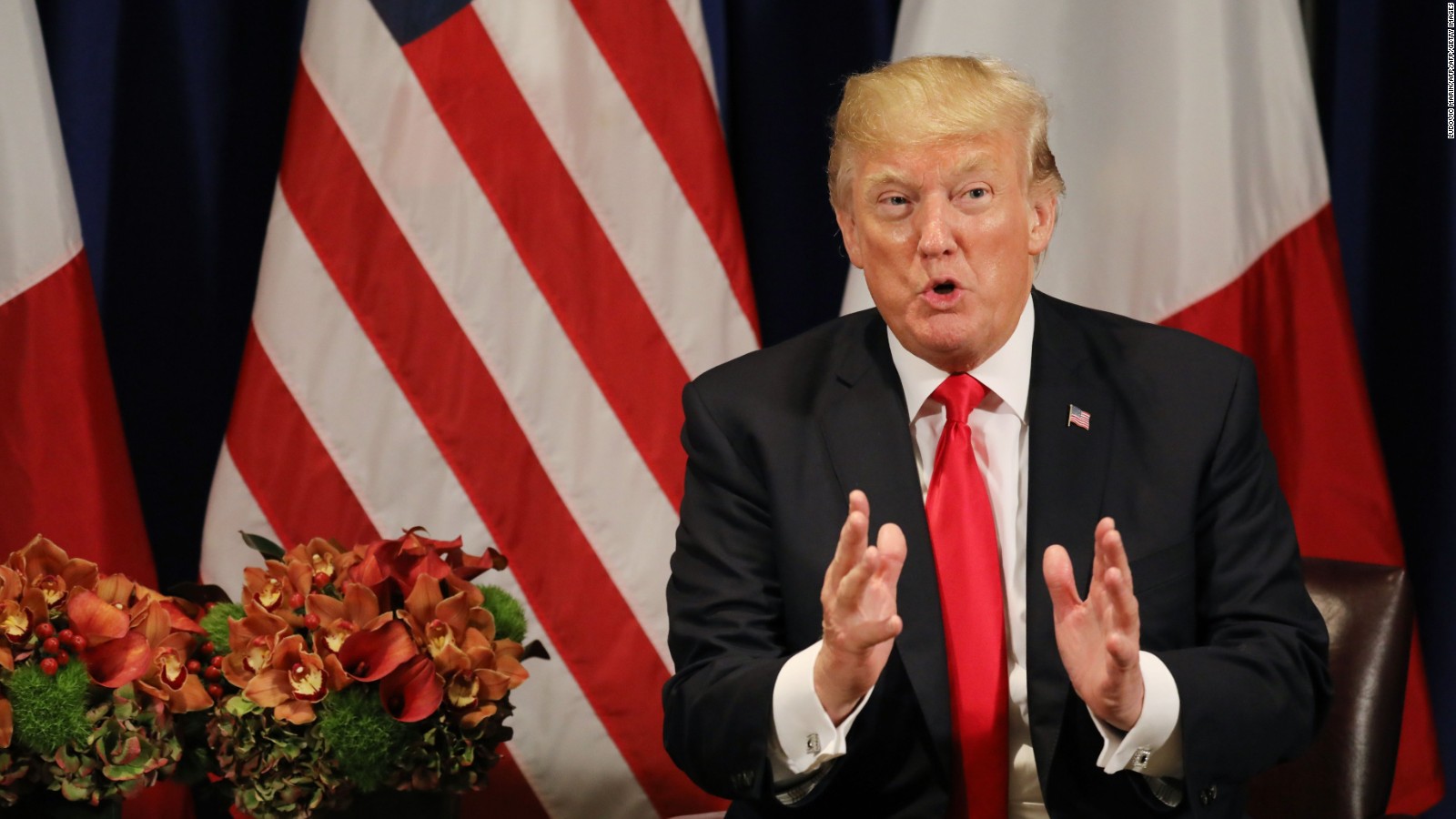 Russia
and China challenged the United States' global leadership in United
Nations speeches peppered with bare-knuckled criticism of the Trump
administration's hostility toward Iran, its "military hysteria" over
North Korea, and its approach to the rest of the world.
Russia
and China challenged the United States' global leadership in United
Nations speeches peppered with bare-knuckled criticism of the Trump
administration's hostility toward Iran, its "military hysteria" over
North Korea, and its approach to the rest of the world.
The
foreign ministers used the backdrop of President Donald Trump's first
turn on the world stage to try to cast their countries as
standard-bearers of a peaceful, democratic and reasoned approach to
global affairs. And they used the opportunity to argue that
globalization, technology and emerging markets are bumping the United
States off its superpower pedestal.
"The
process of creating a polycentric world order is an objective trend,"
said Russian Foreign Minister Sergei Lavrov, adding a bit of snark.
"This is something that everyone will need to adapt to, including those
who are used to lording it over others."
China's
minister for foreign affairs, Wang Yi, was a little more diplomatic.
"We live in an era that's defined by a deepening trend toward a
multipolar world," he said, describing a world "that is witnessing
profound changes in the international landscape and balance of power."
"Countries can be equal"
He
called for the UN to be at the center of the world order, "so countries
can be equal, so countries can run global affairs together."
Lavrov,
speaking in the aftermath of Russia's attempts to disrupt the US
election through a series of cyber-hacking attempts, made a
straight-faced appeal for "rules of behaving responsibly in the digital
sphere," adding, "We prepared a draft of the universal convention on
counteracting cybercrime including hacking."
Trump
said on Twitter in July that he and President Vladimir Putin have
discussed the creation of a US-Russian cybersecurity unit, an idea that
provoked howls of protest from Democrats and others deeply concerned
over ongoing investigations into allegations of links between Russia,
the Trump campaign, and a President who repeatedly said he wanted better
relations with Moscow.
Relations
since Trump moved into the White House have been strained, but Lavrov
said Russia had been pleased by parts of Trump's first address to the
UN, which analysts say Russians saw as acknowledging the need for the US
to share the world stage and avoid interference in other countries'
affairs and the impulse to dictate what they should do.
Trump,
speaking to the General Assembly on Tuesday, liberally sprinkled his
remarks with the word sovereignty, saying it should be the basis of
international relations and collective action -- though he indicated he
would not respect the sovereignty of countries he dislikes, including
Venezuela, North Korea and Iran.
"We
are pleased to see the President of the United States, Donald Trump,
the day before yesterday, from this rostrum, unilaterally say that it's
important to abide by sovereignty (in) international affairs; that it is
important to lead by example rather than dictate one's will to other
people; that countries with different values, culture, and aspirations
cannot just co-exist, but they can work side-by-side on the basis of
mutual respect, and I think this is something we can all subscribe to,"
Lavrov said.
Beyond
that, Lavrov had few kind words for the US. He condemned what he called
"a very dangerous confrontation spiral around DPRK," the acronym for
the Democratic People's Republic of Korea, and alluded to Trump's
rhetoric about the rising nuclear threat from Pyongyang.
In the weeks leading up to the UN General Assembly, Trump threatened to bring "fire and fury" down upon North Korea
if it threatened the United States or its allies. And in his address to
the UN, Trump drew dismayed laughter and later, criticism for his
declaration that if North Korea threatens the US, he will "totally
destroy" it.
"Military
hysteria is not just an impasse, it's a disaster," Lavrov chastised,
adding that Russia "resolutely condemned the missile adventures of
Pyongyang in violation of Security Council resolutions."
Wang reminded everyone that UN Security Council members "must hold an exemplary role" and stress "dialogue over confrontation."
The
Chinese minister noted that during the "Six Party" talks between South
Korea, China, the US, Russia, North Korea and Japan in 2005, the "US
undertook to normalize relations with DPRK." "We call upon the US to
honor its former commitment and we call on all parties to play a
constructive role in easing tensions," said Wang, who added that,
"negotiation is the only way out."
The
Chinese minister said his country "will stay firmly committed to the
denuclearization of the Korean peninsula," and added, "China is always a
force for peace." It was a theme that Lavrov struck as well, presenting
Russia, which invaded and annexed Crimea in 2014, as a force for
balance, stability and peace on the world stage.
The
same, he hinted, could not be said of the United States.
"Unfortunately, the arsenal of many Western states have not diplomacy
but rough pressure," he said, expanding into criticism of the US policy
toward Iran and Trump's hints that he will leave the multilateral Joint
Comprehensive Plan of Action that constrains Tehran's nuclear program in return for sanctions relief.


No comments:
Post a Comment